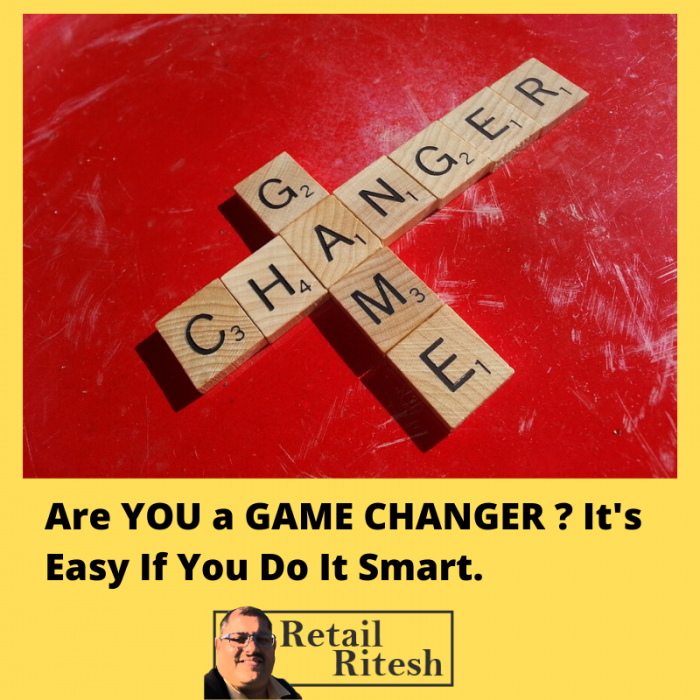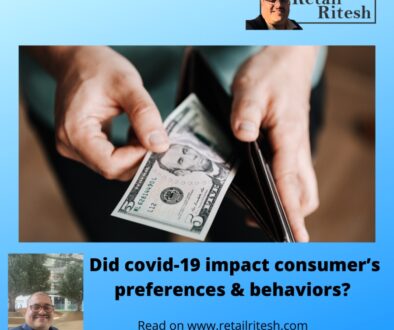Are You a Game-Changer? It’s Easy If You Do It Smart.
Are you creating Disruptions in your Business or industry?
What is common between an alarm clock and a traditional camera film?

Any guesses…
“Both got disrupted & became extinct or outdated”
I recall my student days, wherein the sound of the metal alarm clock used to wake up not only me but my neighbors as well.
The Loud sound was so strong that one could not avoid missing it and instead woke up to it.
Today, most of us use “alarm” functionality on our mobile phones.
Technology is the biggest disruptor.
Yes, disruption can happen fast, but it need not take you by surprise.
Learn to manage Disruptions
a) Keep an eye on technology—not only within your industry but outside as well.
There is a high probability for the technology that will revolutionize your industry in the future is already doing so in a completely unrelated industry today.
b) Manage your business like a chess player
Watch every move of your competition.
If you can, anticipate competitors’ plans and think five moves ahead, you would be in a better position to lead the competition.
Myth- Creating Disruptions are capital intensive.
Disruptive marketing doesn’t have to break the bank to be effective.
Just change the way of getting things done – even a little.
Learn How Accounting practices are being disrupted, by clicking here.
Case study: Airwick air fresheners.
Air fresheners. You don’t give much thought to buying them. You buy something that smells good, right?
But what if you could do more than that?
What if you could create an entire mood by the scent that best describes your décor?
Airwick created such a quiz-style design with its Scent Decorator
Disruptive marketing often tells a story in a way that consumers can understand.
By clicking a few images, you get a better idea of the feeling you want to create in your room, along with recommended air fresheners to complement it.
By creating disruptions, you shake things up by changing customer perceptions about not just the company – but the industry as a whole.
scent decorator video see here
Now comes the truth of human psychology.
Because you have changed customer’s perception entirely, they start relating new, better and more positive feelings with the brand.
Hence I always tell my readers, “Don’t Sell, Tell Stories instead”.
Check the video here.
Disruptive brands are not afraid to be daring and break the status quo.
Case study: Policybazaar.com & scrapGo.com
Let me rewind to the old traditional way of buying insurance policies wherein a middle-aged man/women, mostly referred by our close relatives, used to sell us the insurance policies.
Now fast forward to 2019, we have aggregators like Policybazaar.com, souqamal.com (in the Middle East region) wherein the customers can compare prices, features and returns of various policies and buy them online.
But have you heard something similar in Metal scrap business?
When I first heard about ScrapGo.com, I smiled because of their use of disruption in such an unexciting market—scrap metal.
I thought if this industry could see disruptions, so does any industry.
Buyers, sellers, and brokers populate the scrap metal industry. In exchange for putting buyers and sellers together, brokers take a percentage of each transaction.
Here comes scrapGo.com, who has disrupted the metal scrap business by bringing both buyers and sellers together across the globe on a single platform, charging a fraction of commission for their deals.
If you check the scrapGo.com page on linkedin.com, it employees only 5-10 employees. If they can disrupt a sector, so does anyone else.
Learn about the booming Men’s Grooming business model here
Digital technologies creating disruptions in the African sub-continent.
Consider retail, there are 60,000 people per formal retail outlet in Africa, compared with just 400 people per store in the United States.
E-commerce start-ups such as Jumia – which already has over 4 million customers in 14 African countries – are turning that gap into an opportunity.
The company is betting that online sales will grow from 1% of total retail sales in Africa today to 15% in 10 years.
Jumia’s listing on the NYSE valued it at over $1 billion, giving it claim to be Africa’s first technology unicorn.
What is Disruption Theory or Disruptions in Business?
The concept is well narrated in a quote by Richard Branson.
“Disruption is all about risk-taking, trusting your intuition, and rejecting the way things are supposed to be. Disruption goes way beyond advertising, it forces you to think about where you want your brand to go and how to get there.” – Richard Branson
About the author:
Ritesh Mohan is a passionate retail professional with over 20 years in the Retail sector, handling some of the biggest brands in beauty, fashion and fragrances retail & FMCG sector. Ritesh has been instrumental in the growth of some of the regional brands as well in the Middle East region. He specializes in Retail management, Product development, and Brand Management, Retail Operations, Sales Management, and Franchising & Business Management. He strongly believes in empowering business owners with his wisdom & experience of around two decades in the industry.






